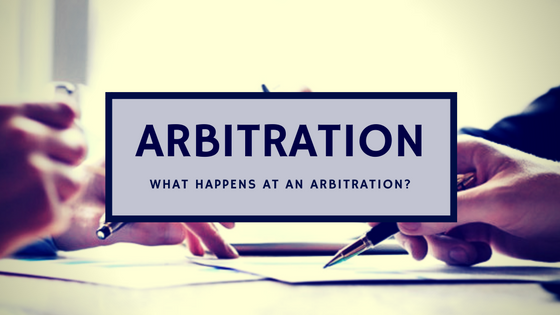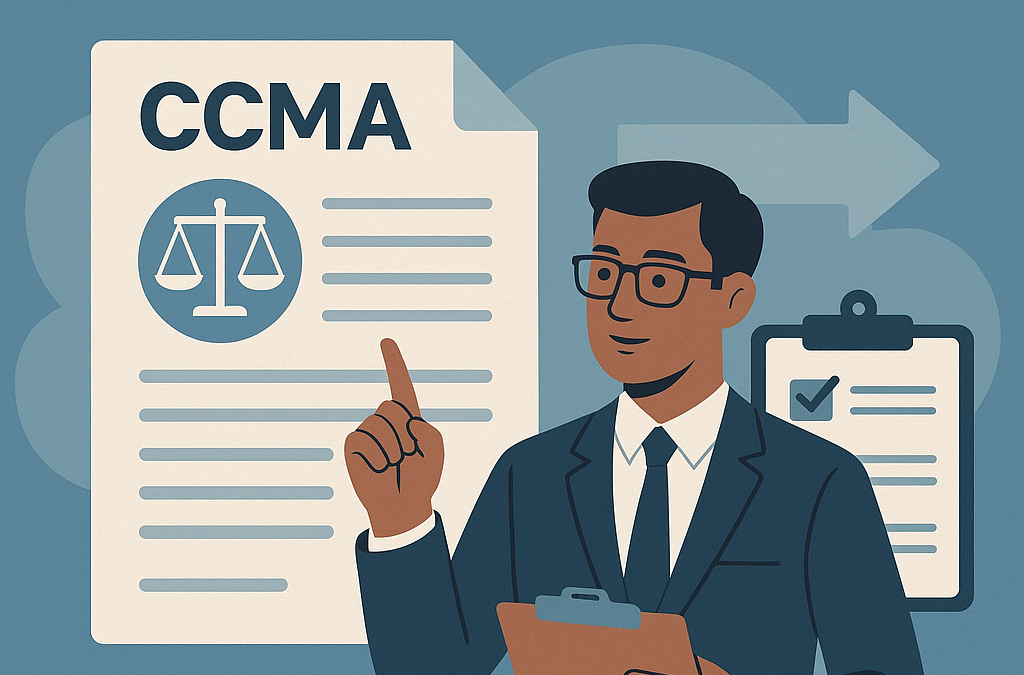When you have attended the conciliation process and the matter could not be resolved, it must be referred to Arbitration. It is important to note that the matter must be referred to Arbitration within 90 [ninety] days from the date that the Certificate of Outcome was issued.
What is Arbitration?
An Arbitration is the same as a mini-trial at Court, but it is to some extent more informal. The parties to the proceedings bring evidence and witnesses and present these to the Commissioner, who would then determine who is right and who is wrong.
Evidence and witnesses
As stated above, evidence and witnesses can be used to support and prove your case. The Commissioner will consider the evidence presented prior to adducing his/her verdict.
Witnesses called to testify on your behalf will be subjected to examination in chief, cross-examination and re-examination
Legal Representation
In matters relating to misconduct or incapacity, legal representation is not automatically allowed. The legal representative would have to submit an application for legal representation to be allowed. The legal representative can put forward an Application prior to the Arbitration being held or can make the Application orally on the day of the Arbitration. The Commissioner will take Rule 25 of the CCMA Rules into consideration when making his/her decision.
The Commissioner can give the ruling on the day or postpone the matter and give a written ruling. If the Commissioner chooses to postpone the matter, the ruling must be given within 14 [fourteen] days from the date of the Arbitration.
During the Arbitration both parties will be granted the opportunity to state their case and present their evidence to the Commissioner.
The Commissioner will then base his decision on the evidence presented before him and give a written ruling in this regard within 14 [fourteen] days from the date of the Arbitration.
Onus
The onus or burden on proof differs from case to case depending on circumstances. The onus will establish which party must start the proceedings. For example, in dismissal cases, the Applicant must establish that he/she was dismissed. If the Respondent admits that the Applicant was dismissed, the Respondent must start by proving that the dismissal was fair. If the Respondent denies the dismissal, the Applicant would have to prove the existence of the dismissal.
Costs
Costs against a party can be awarded in the CCMA. It is important to note that this does not happen very often and it has been my experience thus far, that Commissioners are reluctant to award costs unless extreme circumstances are applicable. There have been instances where the Applicant decided to withdraw his appeal on the day of Arbitration after the Respondent had subpoenaed witnesses and appointed a legal representative. In such circumstances, it is likely that the Respondent will ask for costs. The Commissioner will most likely not grant costs if the Applicant withdraws the matter without the Arbitration even starting. It might be much different if the Arbitration proceedings start and then halfway through the proceedings the Applicant decides to withdraw.
Conclusion
An Arbitration must not be taken lightly. It is a serious proceeding and will continue the same way as a mini-trial at court. When a matter proceeds to arbitration, both parties must ensure that they are ready to proceed on the day and have their evidence and witnesses organized.
When you have attended the conciliation process and the matter could not be resolved, it must be referred to Arbitration. It is important to note that the matter must be referred to Arbitration within 90 [ninety] days from the date that the Certificate of Outcome was issued.












